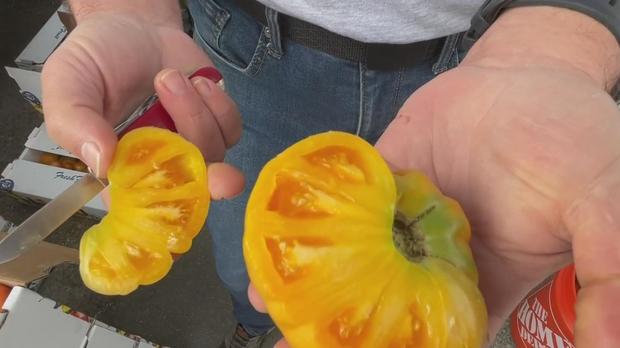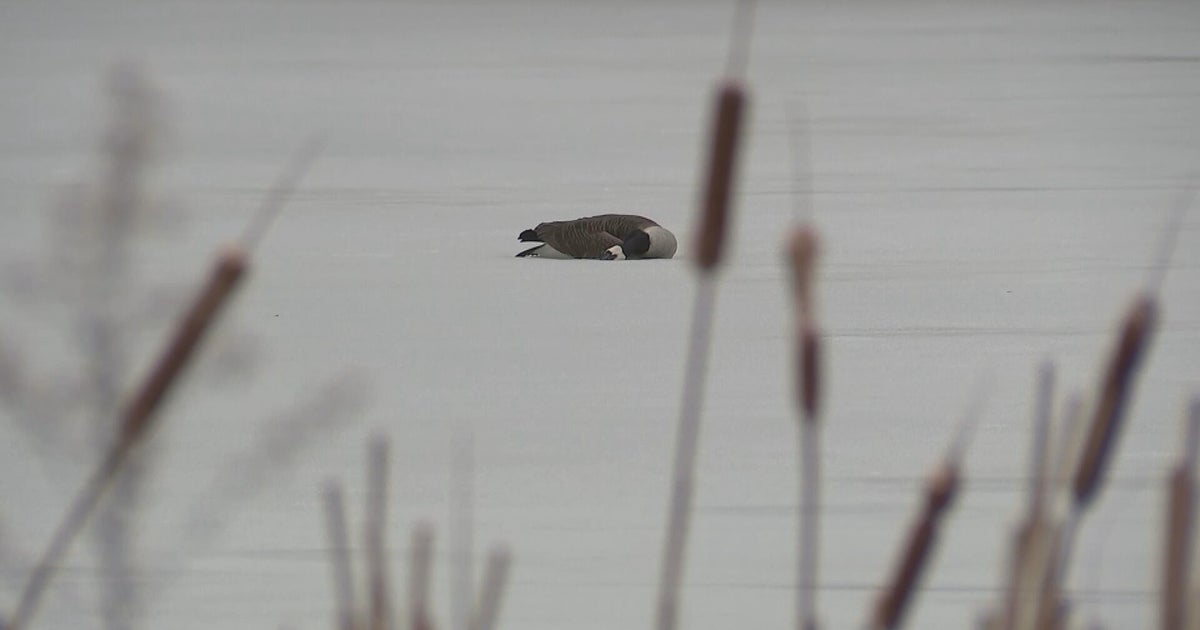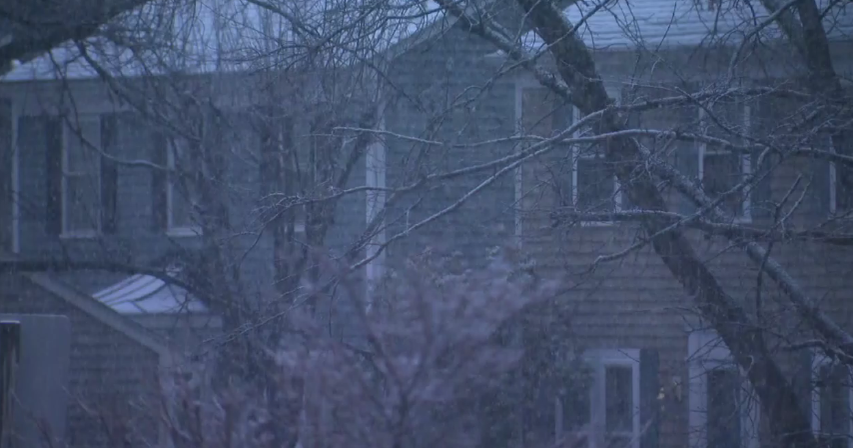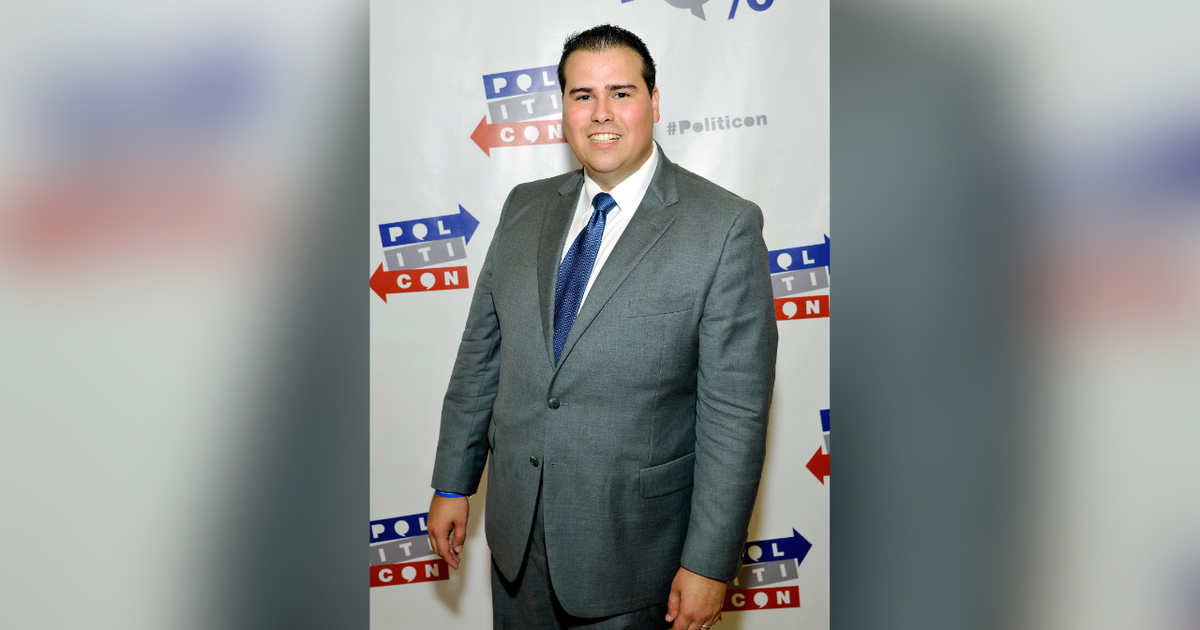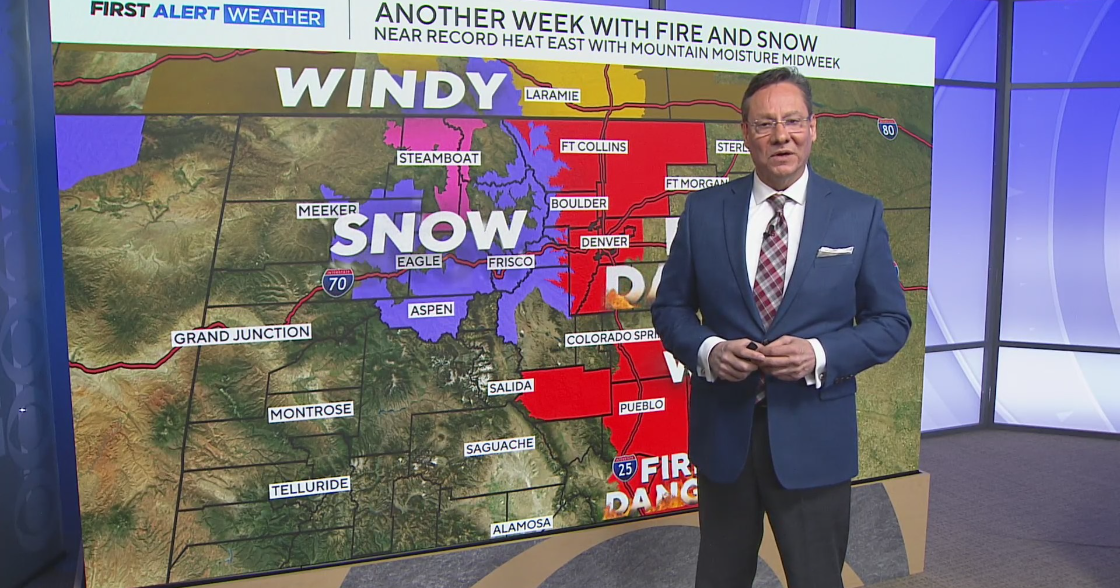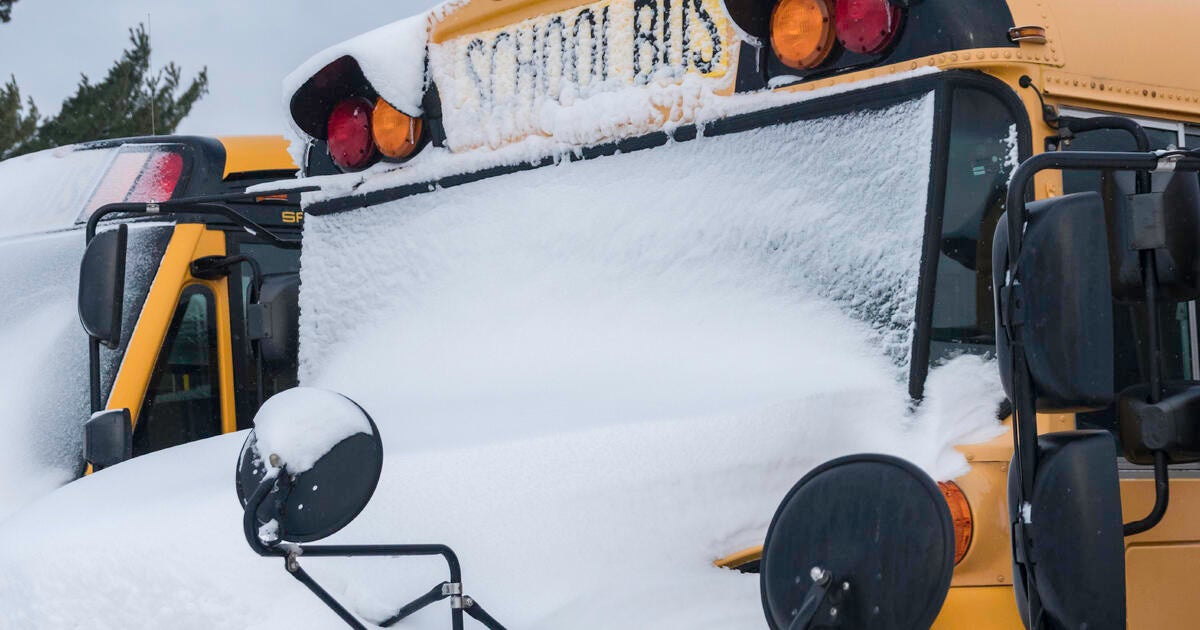Climate change impacting California's tomato crop
WINTERS -- On the heels of a record-breaking heatwave, an atmospheric river brought rain to the Bay Area.
But for farmers in the Central Valley, this extreme weather is creating all kinds of problems, and not just moldy fruit.
California's changing climate is becoming hotter and drier, threatening to crush the state's critically important tomato crop.
KPIX 5 went to Winters to see first hand. The damage visible in the tomato fields was jaw-dropping: much of the fruit was scorched, flattened, squishy, and ruined.
Tomato farmer Nick Petkov said that while the rains cracked the tops of his tomatoes, a bigger force was in play.
"I think it's the climate change that plays the biggest role here," commented Petkov.
Petkov grows gourmet tomatoes on his SunBlaze Ranch in Yolo County. He knows his way around the farm. Nick's grandparents were farmers. As a child, he spent many of his summers and vacations on their farm.
For three decades in the Central Valley, Petkov has cultivated some of the most fertile soil in the world. That said, he has never seen anything quite like this.
"I think this is the hottest summer I've ever encountered in my life," he remarked.
Research shows how the average summer temperatures in California is now three degrees hotter than it was a century ago.
A quarter of all the tomatoes in the world is now grown in California. Most of them are processing tomatoes which will go into ketchup, puree, salsas, and sauces for pastas and pizzas. But several farmers told KPIX 5 the recent extreme heat has damaged a big chunk of the crop.
Petkov lost two thirds of his crop. Many of his tomatoes are so badly damaged, they're only good for compost.
As for the less blistered fruit, he sells them at the Farmers Markets for a big discount. KPIX saw Nick at one market in San Rafael. Eight boxes packed with his slightly damaged, heavily discounted fruit were snapped up within just a few hours.
Petkov explained how many people will make sauce or puree them, and stash them in the freezer for use during the winter months.
As for the third of the crop that survived the weather whiplash, he sells them to top restaurants around the Bay Area. One of his customers is renown chef Laurence Jossel of NOPA, a very popular restaurant located north of the panhandle in San Francisco.
KPIX 5 dropped in to see the chef, who was busy serving the bustling clientele.
"We're here to celebrate farmers. We're here to show who the heroes are, and it's the farmers. They take such big risks, you know, as is being proven now. Your whole livelihood depends on Mother Nature," Jossel said as he put the finishing touches on a big plate of bruschetta made with heirloom tomatoes.
Chef Jossel changes his menu daily based upon what is fresh at the market. These days, he's serving up lots of tomatoes. But he knows his supply might not last as long as previous years. He too is very concerned about climate change. He is seeing a hotter, drier California.
"I have three teenagers. I'm gravely concerned for their future. We are seeing it every single day," noted Jossel.
As for Petkov , he told KPIX 5 that his tomato growing season will end early. Even so, he remains optimistic, noting that's what farmers do.
"I'm not giving up and we were going to do it this again next year. No matter what happens," he vowed.
A recent study published in Nature predicts that with climate change, fewer tomatoes will be successfully grown due to climate change with rising temperatures and more scarce water.
